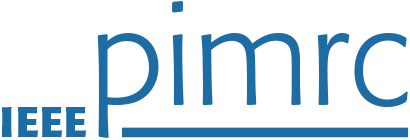Monday 12 September, 16:00-19:00 (UTC +9)
Program
Workshop Keynotes
Workshop Keynote Ⅰ
George Alexandropoulos (University of Athens, Greece)
Monday 12 September, 16:56-17:16 (UTC+9)
Workshop Keynote Ⅱ
Marco Di Renzo (Paris-Saclay University, France)
Monday 12 September, 17:26-17:46 (UTC+9)
Workshop Keynote III
Mohamed-Slim Alouini (King Abdullah University of Science and Technology (KAUST), Saudi Arabia)
Monday 12 September, 17:46-18:06 (UTC+9)
Papers
| Time(UTC+9) | Title | Authors |
| 16:02-16:56 | Identification of RIS-Assisted Paths for Wireless Integrated Sensing and Communication | Zeyu Huang (TU Wien, Austria); Stefan Schwarz (TU Wien & CD-Lab Society in Motion, Austria); Bashar Tahir (TU Wien, Austria); Markus Rupp (TU Wien, Austria) |
| Reconfigurable Intelligent Surface Placement in 5G NR/6G: Optimization and Performance Analysis | Gianluca Brancati (University Mediterranea of Reggio Calabria, Italy); Olga Chukhno (University Mediterranea of Reggio Calabria, Italy & Tampere University, Finland); Nadezhda Chukhno (University Mediterranea of Reggio Calabria, Italy & Universitat Jaume I, Spain); Giuseppe Araniti (University Mediterranea of Reggio Calabria, Italy) | |
| Sensing via Orthogonal Time Frequency Space Signalling and Reconfigurable Intelligent Surface | Ali Parchekani (University of Toronto, Canada); Shahrokh Valaee (University of Toronto, Canada) | |
| 16:56-17:16 | Workshop Keynote I | George Alexandropoulos (University of Athens, Greece) |
| 17:26-17:46 | Workshop Keynote II | Marco Di Renzo (Paris-Saclay University, France) |
| 17:46-18:06 | Workshop Keynote III | Mohamed-Slim Alouini (King Abdullah University of Science and Technology (KAUST), Saudi Arabia) |
| 18:06-18:42 |
Robust Transceiver Design for IRS-Assisted Cascaded MIMO Systems | Hossein Esmaeili (Ruhr University Bochum, Germany); Ali Kariminezhad (efs TechHub GmbH, Germany); Aydin Sezgin (RUB, Germany) |
| On Intelligent Reflecting Surfaces Element Allocation Using Genetic Algorithms | K. Shashi Prabh (Ahmedabad University, India) |
Scope
Reconfigurable intelligent surfaces (RIS) tend to be passive devices which leverage smart radio surfaces with a high number of small antennas or metamaterial elements based on a programmable structure that can be used to control the propagation of electromagnetic (EM) waves. The reflection of EM waves makes RIS highly compatible which can provide high capacity and coverage while benefitting from their energy-efficient characteristics. The RIS- aided systems can exploit multiple functionalities as a subset, altogether or even individually, in terms of sensing, localization, computing and communications (SLCC). Spectral and spatial reuse of several applications can be realized with RIS-configurations. RIS can be implemented in wireless networks for high accuracy localization and target sensing while effectively communicating information bits. The RIS can be integrated in mobile systems and satellite networks with the communications and computing functionalities, which can acquire approaches from mobile edge computing, distributed and cloud computing. The RIS can be incorporated with dual-function sensing and communications. The RIS can be also intertwined with emerging technologies such as internet-of-things (IoT), internet-of- everything (IoE), vehicle to everything (V2X), unmanned aerial vehicles (UAVs), and rate splitting multiple access (RSMA).
International Workshop on Reconfigurable Intelligent Surfaces for Sensing, Localization, Computing and Communications will take place at the IEEE PIMRC 2022. This workshop will provide a forum for sharing multidisciplinary contributions to emerging RIS technology. We aim to bring together leading researchers from academia and industry, to share their recent findings and views on technical advances in RIS with emphasis on SLCC. The conference will be held virtually so as the workshop.
We seek to assemble cross-cutting and high-quality original research papers on topics including, but not limited to:
- MmWave, THz RF spectrum modelling for RIS-SLCC
- Multi-tier computing, mobile and multi-access edge computing,distributed computing and cloud networks for RIS-SLCC
- AI, machine/deep learning, federated learning for RIS-SLCC
- Radar sensing, joint radar-communications with RIS-SLCC
- RIS-aided integrated sensing, localization and communication
- Dynamic hybrid beamforming, waveform design for RIS-SLCC
- Hardware impairment, RF/DAC/ADC optimization for RIS-SLCC
- Channel estimation, imperfect CSI modelling with RIS-SLCC
- Resource allocation and management with RIS-SLCC
- Interference management, RSMA, NOMA, SDMA for RIS-SLCC
- Autonomous UAV, IoT, IoE, V2X, vehicular comms for RIS-SLCC
- RIS-aided xURLLC, eMBB, mMTC in 6G systems and networks
- RIS-aided transmission protocols and network management
- PHY security and privacy issues for RIS-aided SLCC
- LEO satellites, satellite networking with RIS-SLCC features
- RIS-aided target localization, low probability of intercept
- RIS-aided simultaenous cooperative localization and mapping
- RIS-aided context aware localization and positioning
Organizing Committee
General Co-Chairs
Aryan Kaushik (University of Sussex, UK) (Chair)
Carlo Fischione (KTH Royal Institute of Technology, Sweden)
Marco Di Renzo (Paris-Saclay University, France)
Henk Wymeersch (Chalmers University of Technology, Sweden)
Vasanthan Raghavan (Qualcomm, USA)
Nan Yang (Australian National University, Australia)
TPC Chair
George Alexandropoulos (University of Athens, Greece)
Workshop TPC Co-Chairs
J. Andrew Zhang (University of Technology Sydney, Australia)
Muhammad Z. Shakir (University of the West of Scotland, UK)
Symeon Chatzinotas (University of Luxembourg, Luxembourg)
Cunhua Pan (Southeast University, China)
Wonjae Shin (Ajou University, South Korea)
Yijie (Lina) Mao (ShanghaiTech University, China)
Panel Chairs
Arman Shojaeifard (Interdigital Europe, UK)
Maziar Nekovee (University of Sussex, UK)
Important Dates
Paper Submission Deadline: 17 June, 2022 Extended to 30 June, 2022–Closed
Acceptance Notification: 8 July, 2022 Extended to 22 July, 2022
Camera-Ready Due: 1 August, 2022 Extended to 8 August, 2022
Workshop Date: 12 September, 2022


